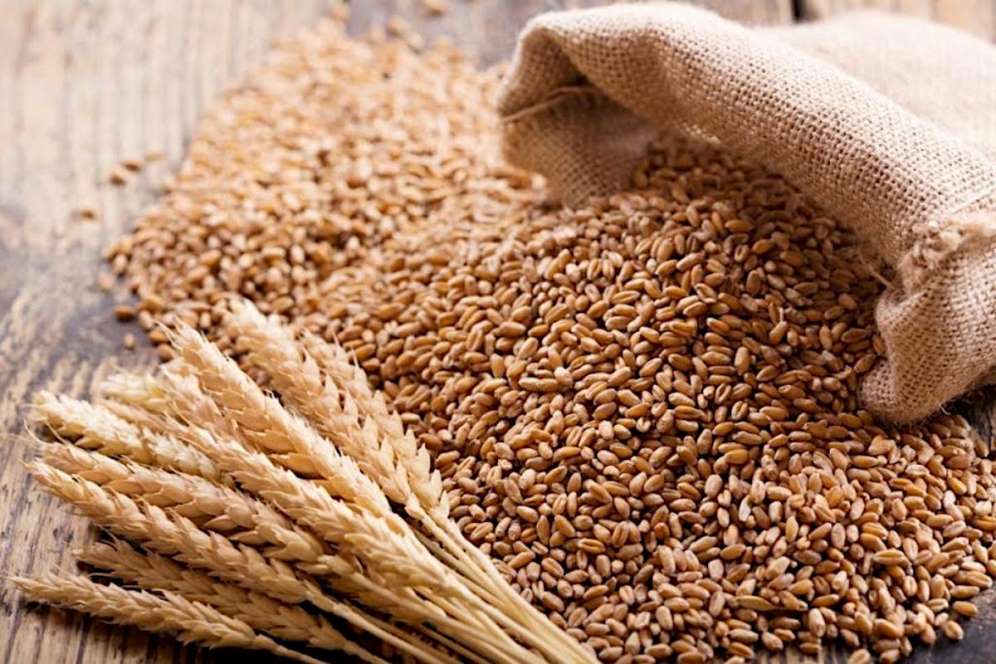From Our Correspondent
The Federal Government hopes to boost wheat production to 1.25 million tonnes of yield as it launched the National Wheat Cultivation Scheme, on Saturday.
Abubakar Kyari, Agriculture and Food Security Minister gave the projection at the launching of the 2023 dry season wheat development project in Auyo LGA of Jigawa State.
TheNewsZenith reports that the project is under the National Agricultural Growth Scheme (NAGS-AP).
Kyari said the ministry designed the scheme to cultivate about 100,000 hectares during dry season. Out of this, Jigawa is supporting the project with 40,000 hectares, he added.
He said dry season farming offered a unique opportunity to harness potential of land and diversify the nation’s food production capabilities.
“Dry season farming is an integral part of National Agricultural Growth Scheme and AgroPocket (NAGS-AP) Project,” he said.
The minister added that the Federal Government is financing the project with a U.S. loan facility.
African Development Bank (AfDB) advanced the facility to Nigeria.
According to the minister, the project is an essential feature of President Bola Tinubu administration’s resolve to expand the capacity of farmers.
The government hopes to enhance the cultivation of key staple foods like rice, maize, cassava and wheat across the country.
Read Related News:
“These high-value staples will join others like soybeans and sorghum in the wet season.
“In wheat alone, the government will support between 150,000 and 250,000 farmers with a 50 per cent input subsidy.
“We expect the farmers to cultivate between 200,000 and 250,000 hectares with an expected yield of 1,250,000 tonnes,” Kyari said.
Speaking earlier, Gov. Umar Namadi of Jigawa, said the state “is the heart of wheat production in Nigeria.
Namadi said the state has the potential to provide up to 200,000 hectares of wheat production annually.
“The rich expanse of Hadejia Valley is also known for its rich alluvial sandy loam and clay soils, good for all seasons and all crops farming, particularly wheat and rice,” the governor said.
According to him, the full package of the project comprises a mix of inorganic liquid urea; organic fertilisers, fortified with booster and growth enhancers; certified wheat seeds and herbicides.
He said the programme would expand the capacity of over 42,000 smallholder farmers.
“Each of the farmers will receive input subsidy support granted from the Federal Government.
Also Read:
“This is equivalent to 50 per cent of the cost of packaged input requirements amounting to about N361,000 per hectare.
“Each farmer will pay 12.5 per cent of the total cost of the input package equivalent to about N42,125 per hectare at the point of input collection.
“The ministry will recover the balance of N135,275 after harvest.
“In order to provide comfort to the Federal Government and input suppliers, the Jigawa State Government is collaborating with Nigeria Incentive-Based Risk Sharing System for Agricultural Lending (NIRSAL).
“The arrangement will provide a guarantee for the balance of 37.5 per cent of the cost of inputs supplied,” Namadi said.
He added that the state government would also provide free extension services to the farmers.
“We will engage and train an additional 1,440 extension agents to ensure full coverage.”
The governor urged the Federal Government to accelerate the completion of the Hadejia Valley Irrigation Project. The project, he said, has a potential irrigable area of over 25,000 hectares.
Do you have a flair for Citizenship Journalism? Share story(ies) of happenings in your area with The NewsZenith on WhatsApp: 08033668669 or thenewszenith@gmail.com
